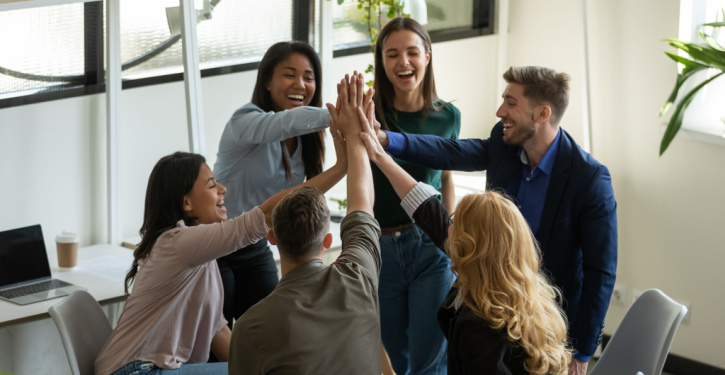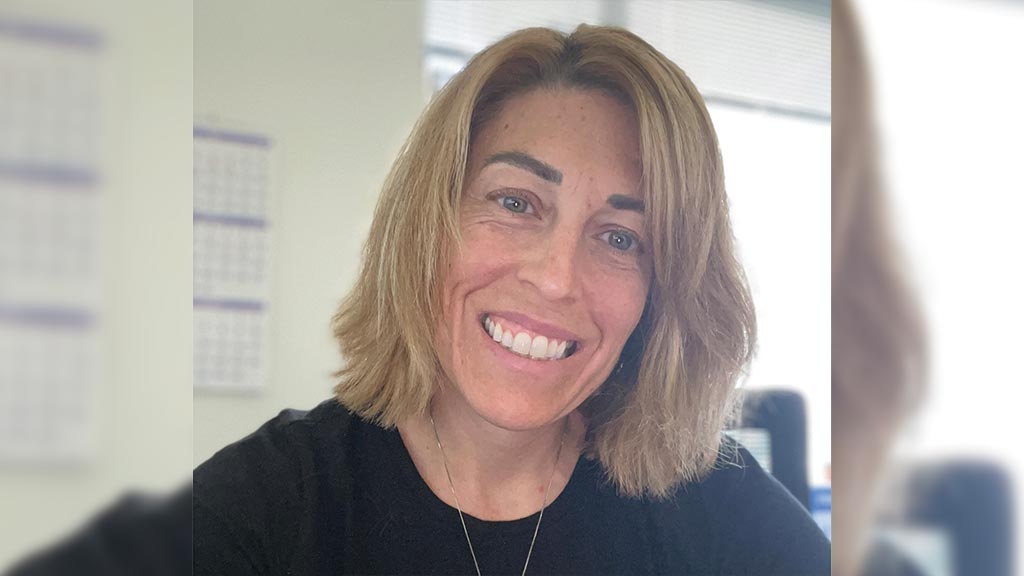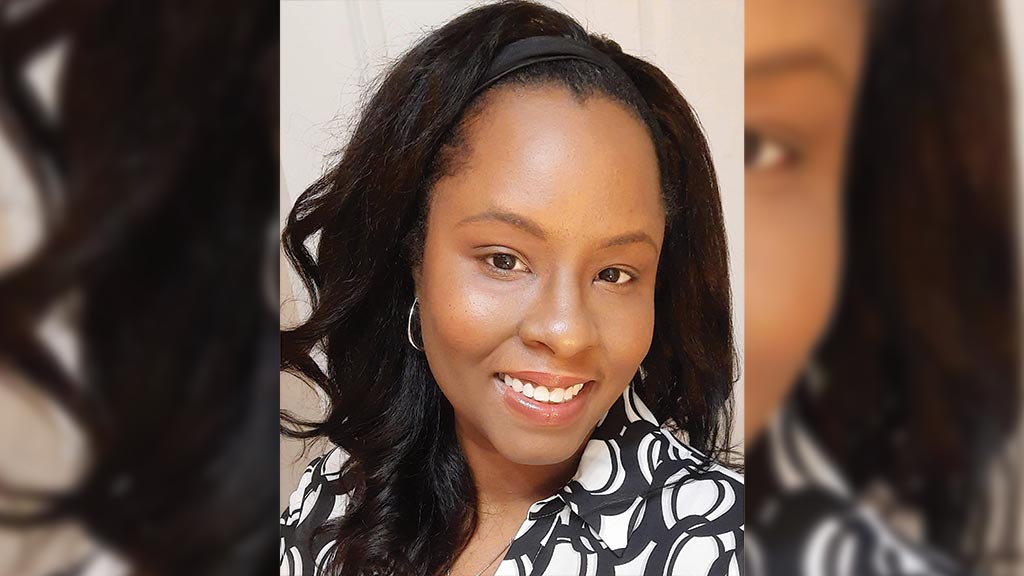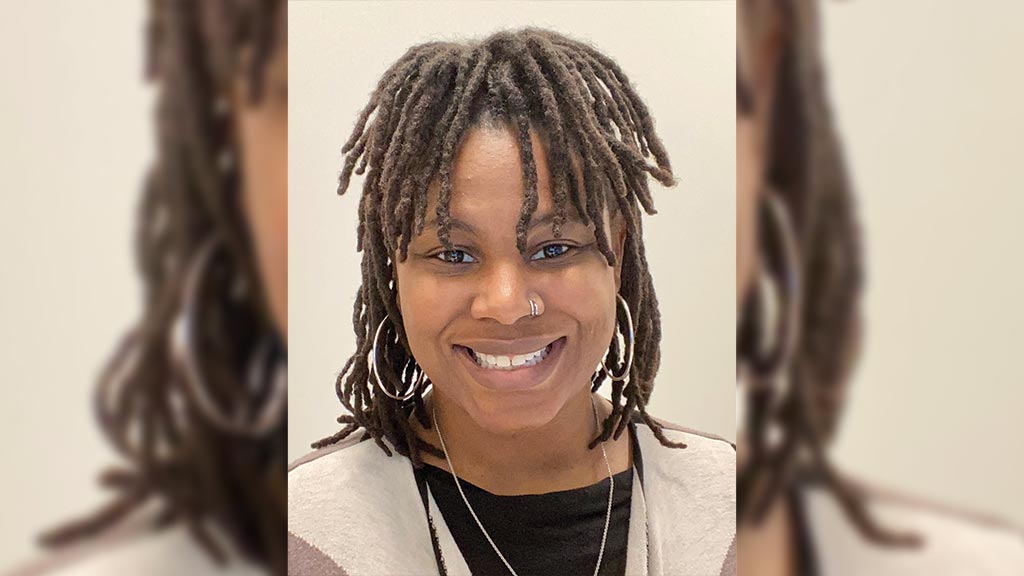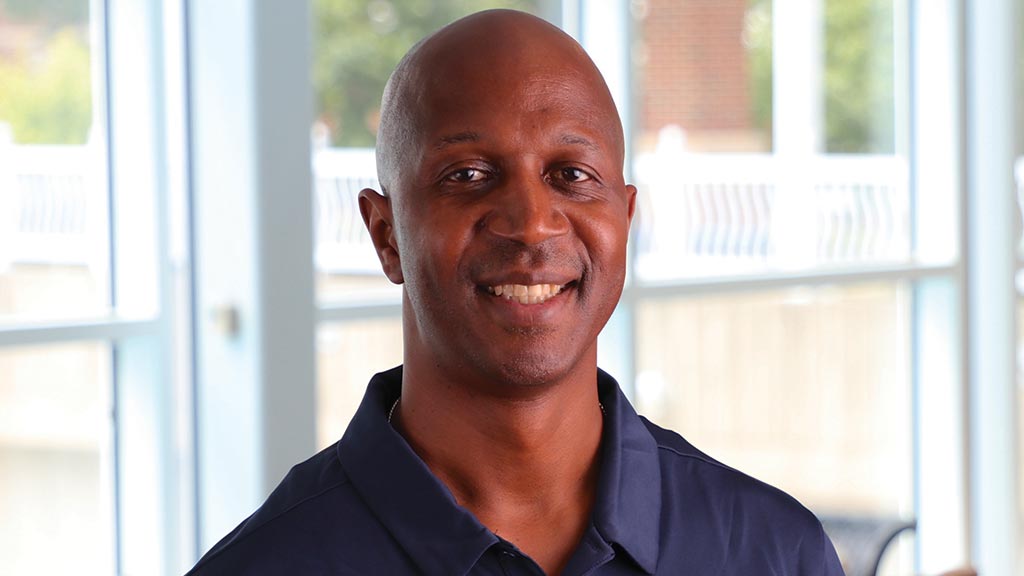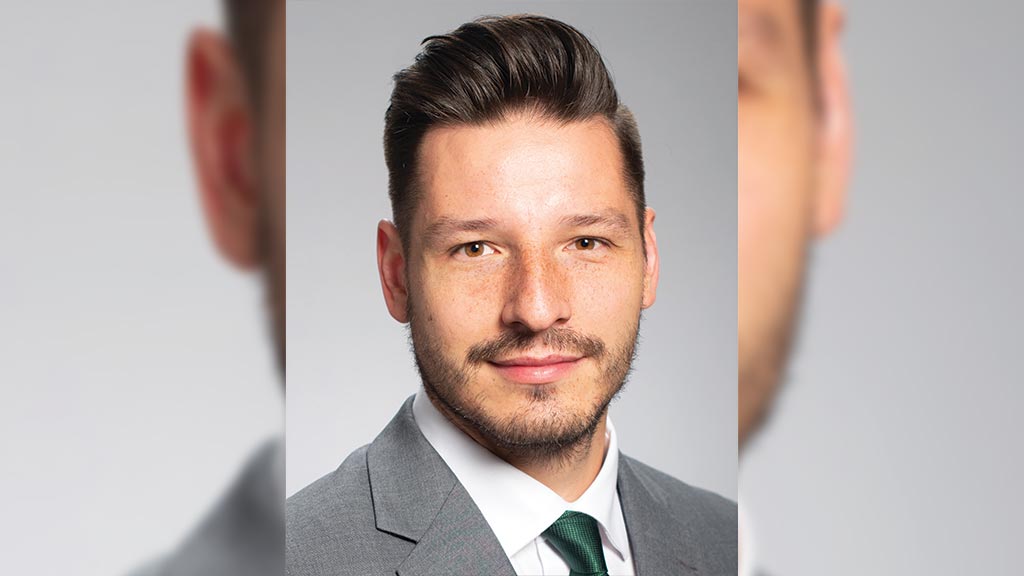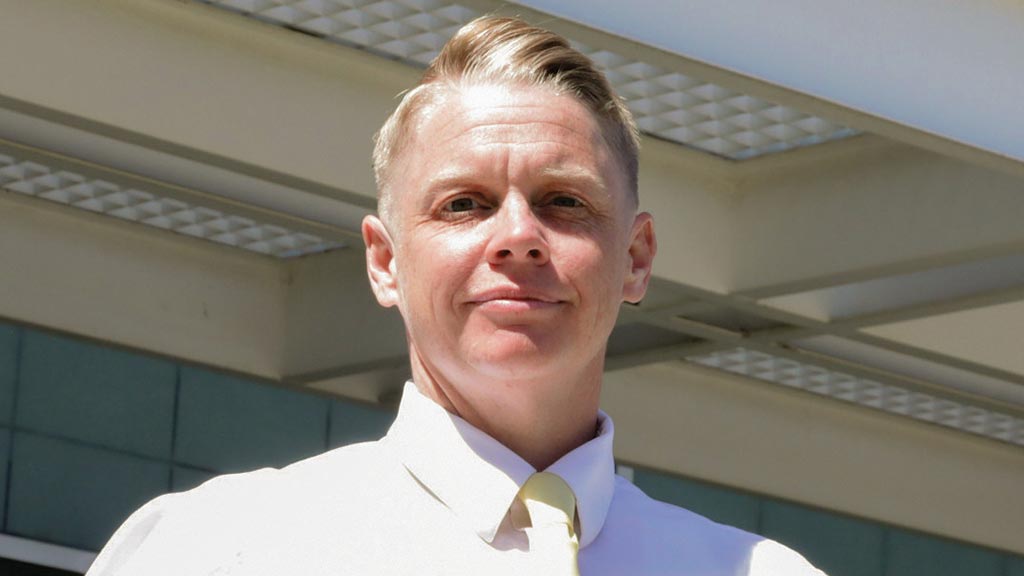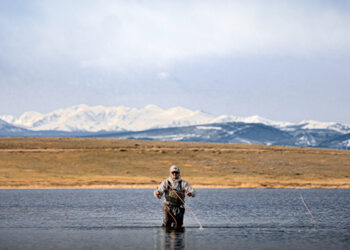There is a lot of great work being done in the industry of campus recreation, especially when it comes to equity, diversity and inclusion (EDI).
Although we don’t have space to showcase every effort, we too want to play a part in furthering EDI. As such, here are the 2022 nominations for outstanding EDI work in the industry. We hope it helps spark ideas on how to bring further impact to your department and the students you serve.
Michael Hoover | Becky Todd
Associate Director of Assessment, Staff Development and Outdoors | Director of Programs, University of Arkansas
How are you crafting outdoor rec experiences for all? What EDI considerations go into outdoor rec?
BT: University Recreation, a department within the Division of Student Affairs at the University of Arkansas, has partnered with the Center for Multicultural and Diversity Education to offer programs and events for traditionally underrepresented communities of our campus.
The partnership has resulted in a variety of programs offered through an Inclusion Series. It connects traditionally underserved campus communities with program options in:
- Outdoor recreation
- Aquatics
- Fitness
- Sports
- Wellness
Outdoor recreation programs offered through the Inclusion Series are based on the belief that natural spaces, parks and the opportunity to recreate outside should exist equitably for all.
Can you share specific examples of how you are achieving this at the University of Arkansas?
MH: The outdoor recreation programs offered through our Inclusion Series are designed to create community and a sense of belonging for students on our campus. Specific program offerings have included:
- LGBTQ+ indoor climbing.
- Black, Indigenous and People of Color outdoor climbing and backpacking.
- An Indigenous student canoeing trip.
While these programs are designed to create opportunities for specific communities on campus, they are open to all students, faculty and staff. Program participants have reported a sense of empowerment, acceptance and new communities around shared identities. Student participants in these outdoor programs have shared that “these trips helped me feel visible and like I was part of the university.”
The Inclusion Series provides underrepresented students the opportunity to feel comfortable trying something new, and to benefit from the vast health and wellness benefits associated with spending time outdoors.
Kate Durant
Assistant Director of Programs, Boston University (BU)
Can you share how you’ve helped change BU policies to be more inclusive?
KD: One of the major initiatives our team worked on was to institute consistent hiring practices in our department. We attended trainings offered by our university office of Diversity, Equity and Inclusion, and researched hiring practices across the university.
We came up with two questions that must be asked during the interview process aimed to gauge the candidate’s participation, research and leadership in EDI issues. Our committee also developed rubrics to mitigate any bias from the search committee. We have a strategic plan in place to help us identify and achieve EDI goals in our department. Most of our goals are not based in changing policy but rather in participation and training which will eventually lead to change in policy.
What is the top lesson you can share to help other professionals further EDI work on their own campuses?
KD: I think the best lesson that has helped in this committee work is to listen.
The process to make change requires research, data and support from your department. Our committee meets two times a month. One meeting we discuss policies, our strategic plan and our goals for the committee or the department. The other meeting is where we pick a topic and the discussion leader facilitates a conversation. This format allows for different people to participate at different levels. The discussion meetings allow a space to listen and learn from other individuals whose lived experience is different than yours. It challenges your critical thinking skills, expands your view and intensifies your empathy for human experiences.
To get started, I would:
- Seek support from your supervisor or department lead to start having discussions.
- Listen to a relevant podcast.
- Read an article.
- Attend an on-campus training/event with an EDI focus and bring that back to the committee.
Renita K. Harley
Associate Director of Admin and Finance, East Carolina University (ECU)
How are you continuously taking a proactive approach to advancing diversity, equity, inclusion and social justice at ECU?
RH: As a leader with the Organization of Black Staff, my most present focus is on helping to create a space where staff members have the support needed to navigate some of the complexities presented while working within a predominantly white institution. My goal is to help ensure Black staff members not only share a collective voice but are comfortable in expressing their unique individuality.
Currently, I am working on rebranding our employee resource group. The goal is more members who identify as Black or African American are aware of our existence. I’m simultaneously working with the campus community to create more of a presence for our group by hosting social events and community-based volunteer activities. I know Black staff members play a pivotal role in helping students of color feel a sense of belonging.
Right now, I’m working to create pathways that promote increased engagement within our group and the campus community. Every interaction, every face, every story pours into the ever-expanding ECU Pirate culture.
Can you share about the Welcome Back event you helped organize?
RH: The Welcome Back event was hosted by the Organization of Black Staff and the Black Faculty Organization. This event was held during a time where many were just coming back from months of working off campus due to the COVID-19 pandemic. We wanted to host this event to give everyone some much needed in-person face time. It was a wonderful opportunity for staff and faculty alike to network with colleagues at various stages of their careers. It also gave everyone the chance to simply catch up with friends, meet new people and forge new relationships.
We also had the opportunity to hear directly from university leaders. Chancellor Rodgers addressed the group and many members across the university’s leadership were in attendance. We planned our second annual Welcome Back event to take place Fall 2022.
Jasmine Holmes
Associate Director for Sport Programs, Syracuse University
How do you ensure the prevalence of EDI in both events and staff at Syracuse?
JH: Choice and challenge. These two words reflect how I ensure substantive change, which is the value of diversity, equity and inclusion (DEI). I seek tangible and impactful progress. Approaching DEI from this perspective has helped me remain focused on what matters most when advocating for DEI within events and for staff.
One example of when I have made choices that challenge the status quo and move us toward a more equitable environment is in hiring staff. I took the extra time to solicit a diverse slate of candidates, involved various perspectives in the interview process and ultimately selected a staff that represents a broad spectrum of the students we serve. This has been extremely valuable as we aim to serve the university community.
How do you help NIRSA members connect with the importance of this work?
JH: My position as Chair of the Social Justice Work Team for the NIRSA Championship Series has elevated my ability to connect with NIRSA members and set an expectation to incorporate DEI into the work we do on our campuses. Yes, our focus is mainly on sport, but we also have an emphasis on equitable practices that can and should permeate staff selection, education and development of the membership, and sharing the impact.
I am really proud of the efforts the Social Justice Work Team has accomplished to move the Championship Series forward. One example is our creation of a guidebook for regional and national host sites when facilitating competitions to ensure we are being socially just. It includes building accessibility, honoring First Nations people in their territories, encouraging bias incident reporting, etc.
We must continue to be open to feedback and when the time is appropriate, be creative and brave. If we are steadfast in our value for belonging, then long-term inclusion becomes more important than temporary inconvenience.
I’m confident we will continue to implement policies that demonstrate our values, encourage input and celebrate progress. When we are successful with these three things, I believe it will foster even greater participation and advocacy.
Michael Howard
Managing Director of Recreation Facilities, Duke University
Can you share how you’ve influenced EDI initiatives at Duke?
MH: My influence surrounding EDI started with me showing up as my entire self in the workspace and providing a different perspective than most based on real-life experiences.
I also worked to challenge stereotypes and create a welcoming and inclusive environment/atmosphere for our entire Recreation and Physical Education team. This work encouraged individuals to feel and know they are physically and psychologically safe in their workspace.
One of my proudest efforts is my connection to Durham Nativity School (DNS). We established annual field trips for their eighth-grade students, which led to the creation of a summer partnership between Duke Recreation and Physical Education and DNS graduates. This internship allows DNS graduates to work within Duke recreation facilities while gaining all the direct and indirect benefits of working at Duke University. Each week is concluded with what has been coined Developmental Friday. This is an opportunity for students to learn and conversate with leaders of color within the Duke community. Two central pillars of the program are exposure and career beginning/development.
More internally, I have worked with our programs on policy adjustments and program assessments through an EDI lens. Much of Duke Recreation and Physical Educations’ work was led by our Anti-Racism Committee, which was established after the murder of George Floyd.
What is your current role with the diversity equity, inclusive and belonging (DEIB) strategic plan?
MH: I co-chair the DEIB Taskforce and now the DEIB advisory committee alongside Dr. Heather Ryan. The task force’s charge was to create a strategic plan, which included initiatives for the next five years, a mission surrounding DEIB, a tagline and a departmental messaging guide. The advisory board is charged with implementing the strategic plan initiatives for 2022-2023 and all annual initiatives. All initiatives fall within three focus areas:
- Embracing diversity.
- Expanding diversity through hiring, retention and education.
- Strengthening the sense of belonging with the entire Duke Athletic community.
Marcus Jackson
Director of Campus Recreation, University of Illinois-Urbana Champaign
What role have you played in NIRSA’S EDI efforts?
MJ: I was part of the NIRSA Commission on Equity, Diversity and Inclusion working with other collegiate recreation staff to identify issues around bias and discrimination that involved recreational sports/well-being and create a resource to help discuss and address them with staff. We also sought to help define terms often used around this work in order to make it less intimidating for folks to engage in and hopefully provide a springboard for further learning.
Can you share one or two positive impacts these efforts have had?
MJ: One positive impact this work has had is to create accessible avenues for discussion of this topic. By using examples from the field, we intended to make the material more relatable so staff at multiple levels and stages of their journey would be able to utilize the resource.
Another positive impact was to share resources that allow folks to explore and learn at their own pace, generating conversations about this critical topic on their campuses and beyond. This issue and the work surrounding it is ever-evolving, and we never intended to be the sole resource or voice but one that folks could have at their fingertips for further development.
Henry Knejfl
Associate Director of Programming with CENTERS, University of Alabama at Birmingham (UAB)
How are you supporting EDI efforts in CENTERS?
HK: In CENTERS at UAB, we support and lead EDI efforts in many ways. In our program planning, we create a plan that includes a variety of options to support the various needs of our students and members. We aim to remove barriers and give access to our programs to as many people as possible. Many of our fitness, adventure recreation and competitive sport options are free or are accessible with a nominal fee.
We were also one of the first locations on campus to offer an all-gender locker room/restrooms to create a more welcoming and inclusive environment for everyone. In previous semesters, we have partnered up with our campus colleagues from the office of Student Multicultural and Diversity Programs to create special programs to support our LGBTQ+ community on campus.
Our team truly believes in the strength of a diverse team. Our institution is very diverse, and we hire a diverse team of professionals as well as a diverse team of student employees to better understand and represent the UAB student body. One of our marketing/communication goals last year was to not only include diversity in our communication but truly celebrate diversity. For example, we try to incorporate different people on our social media to represent as many subgroups on campus as possible. Our goal was to develop an Instagram grid that would be as representative as possible to our students.
Additionally, all of our professional and student staff members are required to complete onboarding training from our colleagues from the Disability Support Services. To further support our commitment to accessibility and inclusivity, our team has implemented several marketing/communication guidelines ranging from including closed captions on videos to ALT text with posting pictures to our marketing operations.
Sarah Shouvlin
Previous Associate Director of Programming, Princeton University
What have you been doing to further EDI in the industry?
SS: In May of 2021, the Region 1 Leadership Team — including Region 1 Member Network Representative and State Directors of the region — met to review our goals and committees, as well as the NIRSA Strategic Plan.
Additionally, a regional EDI committee would not only align ourselves with the NIRSA Strategic plan for 2021-2024 but provide a platform to actively engage in the initiatives. With the support of the leadership team, we decided to form the new Region 1 EDI Committee.
Our committee got to work right away, setting out three goals for the year:
- Support the NIRSA JDEI Climate Survey
- Review Region 1 content/resources and provide recommendations
- Serve as a conduit of resources for the region.
Perhaps as a result of concerted outreach efforts, Region 1 had the most survey submissions for the NIRSA JDEI Climate Survey. We were also able to actively contribute to the Region 1 newsletter, offering resources for our members to learn about NIRSA’s history and connection to HBCUs, an inherent bias test, as well as tips for accessible meetings. Perhaps most importantly, we were able to create a model committee structure that can hopefully help the region to continue crucial EDI work for many years to come.
Outside of my work on the Region 1 EDI Committee, I have continued to serve NIRSA through the LGBTQ+ friends social planning committee, which has grown over the years and garnered tremendous financial support for the Frederick R. Braden Scholarship for Social Justice.
On my own campus, I have served on the Princeton University Campus Life Diversity and Inclusion Committee. It aims to provide professional development opportunities for our campus administrators to engage in thoughtful EDI dialogue, workshops and seminars.
On a more personal recreation-related note, I have served on the Board for the Philadelphia Freeze Women’s Hockey Club and worked to craft updated eligibility requirements for both our club and the United Women’s Hockey League to ensure we are creating a safe and welcoming environment for all.
Jeremy Stewart
Associate Director of Fitness Operations, Cornell University
In what ways are you helping to further EDI at Cornell?
JS: Before stepping into my new role as the associate director, I was able to be a part of many projects that contribute to EDI:
- First, I led the Cornell Wellness Celebrates Black History Month Campaign — read more below.
- I was charged with leading a DEI Well-being Initiative. Karen Williams, Patricia Gonzalez and I assembled a team of individuals to assess marginalized populations at Cornell and how we could improve their well-being.
- I was also featured twice on the Inclusive Excellence Podcast hosted by the Department of Inclusion and Belonging here at the university.
- I also contributed to the Cornell staff training videos on how to create belonging and what it means to feel like you belong at the university.
- Most recently I was able to co-facilitate a Mental Health Skills group for Men of Color on campus with the help of Aqib Chowdhury who is a licensed counselor.
- I also sit on the executive board for the Men of Color Colleague Network group at the university.
Can you share about the Black History Month Campaign?
JS: The Black History Month Campaign was a campaign I launched during Black History Month where I interviewed over 20 individuals — mostly Black staff and faculty from the university — and chatted with them about their journey toward wellness.
For example, I had the opportunity to talk with Dr. John Clarke who is a very successful Black doctor. At the height of the pandemic, he was extremely influential in creating ways for us to minimize our risk of being infected, especially on campus.
The campaign was well-received and helped jumpstart the many other projects and initiatives I was able to be part of around campus. Most importantly, this campaign allowed for many people, who are not of color, to get a perspective they had not seen or felt before. I was just a facilitator in this process. The success of this campaign is due to every individual in which I spoke with and their willingness to be vulnerable. The success is owed all to them and I can’t thank them enough for it.
Beck Van Horsen
Assistant Director of Outdoor Adventures, University of California, Davis (UC Davis)
Can you share about the adaptive whitewater rafting programs you’ve led?
BVH: In 2002, I started my career in outdoor recreation as an intern for an adaptive whitewater rafting program based on the South Fork of the American River. I wound up working for that program for 10 years. Then I was given the opportunity to manage a similar program based out of Moab, Utah.
I found being able to use creativity and problem solving to be able to tell people “yes” when they asked if they could do a five-day class IV rafting trip was truly inspirational. So many people who are born with or acquire a disability are told “no” or “you can’t” when they express their interest in doing something that may seem outside of their ability. I was in the business of saying, “Yes, you can” — and it was amazing.
Can you also share on the speakers series at UC Davis?
BVH: In 2021, the Diversity, Equity and Inclusion Task Force at Outdoor Adventures started a new and exciting speakers series. The idea was to reach out to industry professionals who identify as being part of an underrepresented group in outdoor recreation and ask them about their experience. We wanted to give our audience the opportunity to learn from these professionals, ask tough questions and also just see that they exist.
How have you played a hand in raising over $20,000 to support EDI initiatives?
BVH: We recognize cost is a huge barrier to entry for folks.
Outdoor Adventures’ DEI Task Force identified this issue as a No. 1 priority and began fundraising in September 2020. Almost immediately, donations started rolling in. We called alumni, utilized our campus development department and began writing grants. Within six months we raised $21,000. Those funds are specifically allocated to assist participants and staff with:
- Trip costs.
- Training costs.
- Apparel costs for staff who do not have the appropriate clothing to stay safe and comfortable in the field.
We continue to fundraise and hope to create an endowment in the near future so we can continue to offer these opportunities to our community.
Looking for more? Check out the 2021 nominations here!


